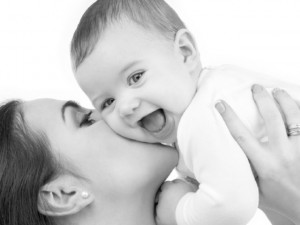 Acupuncture and Traditional Chinese Medicine (TCM) has been practiced longer than any other system of medicine in the world. Acupuncture is a comprehensive healthcare system that originated in China over 3,000 years ago.
Acupuncture and Traditional Chinese Medicine (TCM) has been practiced longer than any other system of medicine in the world. Acupuncture is a comprehensive healthcare system that originated in China over 3,000 years ago.
Click on the links below to learn more.
What can I expect during treatment?
How often do I need to come in for acupuncture treatment for infertility?
Is acupuncture covered by insurance?
What else does acupuncture treat?
Acupuncture and Traditional Chinese Medicine (TCM) has been practiced longer than any other system of medicine in the world. Acupuncture is a comprehensive healthcare system that originated in China over 3,000 years ago. Traditional acupuncture is based on an energetic system of the flow of vital energy, called Qi (pronounced chee). This Qi flows in a circuit around the body through distinct pathways called meridians, which have been mapped out by Doctors of TCM over thousands of years. When this circuit is running smoothly, the body is in balance and there is a healthy state. However, if there is a disturbance or blockage in the flow of Qi in the meridians, pain and illness result. Acupuncture uses the insertion of very thin needles placed at specific areas of the body to help restore balance in the meridians.
Many complex theories have been proposed to explain the proven effects of acupuncture. Research suggests that acupuncture produces effects in many ways in the brain and the body. It is theorized that stimulated nerve fibers transmit signals to the spinal cord and brain, thus activating parts of the central nervous system. The spinal cord and brain then release certain hormones responsible for making us feel better overall, improving our mood, and decreasing pain sensation. Also, acupuncture increases blood circulation and body temperature. It also affects white blood cell activity, which is responsible for our immune function. Acupuncture appears to transmit its effects via electric, neurologic, hormonal, lymphatic, and electromagnetic wave pathways in the body.
Acupuncture needles are very thin and smooth, so when they are inserted, many people feel only a slight sensation or nothing at all. Most people are surprised by how little they actually feel with the needles. Some people feel a tingle, heaviness or warmth when the needle is inserted.
When performed by a qualified Licensed Acupuncturist, acupuncture is very safe. Most acupuncturists today use sterilized, individually packaged disposable needles.
What can I expect during a treatment?
The acupuncture treatment takes place on a massage table. Many patients wear loose clothing so they can roll up their sleeves or pants as necessary. After the acupuncture needles are inserted, they are left in about 20-25 minutes. The lights are dimmed, and soft music is playing. Many people find this to be very relaxing, and some even fall asleep.
How often do I need to come in for acupuncture treatment for infertility?
For the treatment of infertility, it is recommended to have acupuncture once or twice a week. Ideally twice a week is best, as we see higher pregnancy success rates for patients receiving treatment at this frequency. However, it is not realistic for everyone to come in twice a week and acupuncture treatment once a week can still be very beneficial.
Is acupuncture covered by insurance?
Some insurance companies do cover acupuncture treatment. Unfortunately, many do not. Our office can contact your insurance company to find out if you have any acupuncture coverage.
What else can acupuncture treat?
- Ear Nose and throat disorders
- Sinusitis
- Allergies
- Dizziness
Gastrointestinal Disorders
- Irritable Bowel Syndrome
- Constipation
- Diarrhea
- Gastritis
Gynecological Disorders
- Premenstrual Syndrome
- Irregular, Heavy or Painful Menstruation
- Hot Flashes
- Night sweats
- Morning Sickness
Emotional and Psychological Disorders
- Anxiety
- Insomnia
- Depression
- Stress Reduction
Musculoskeletal and Neurological Disorders
- Arthritis
- Neuralgia
- Sciatica
- Back Pain
- Bursitis
- Tendonitis
- Stiff Neck
- Shoulder pain
- Knee pain
- Headaches and Migraines
- Muscle Spasms
